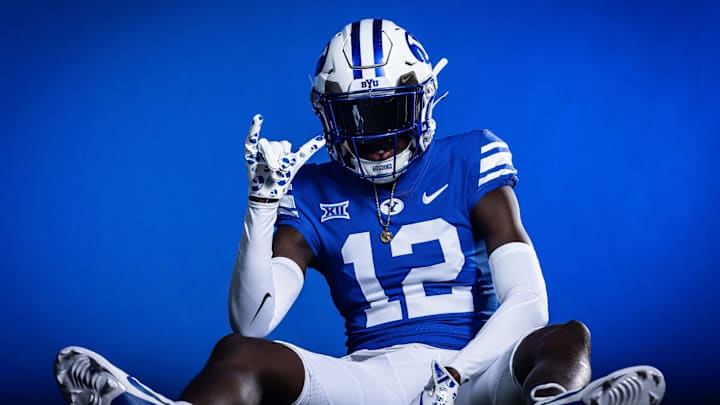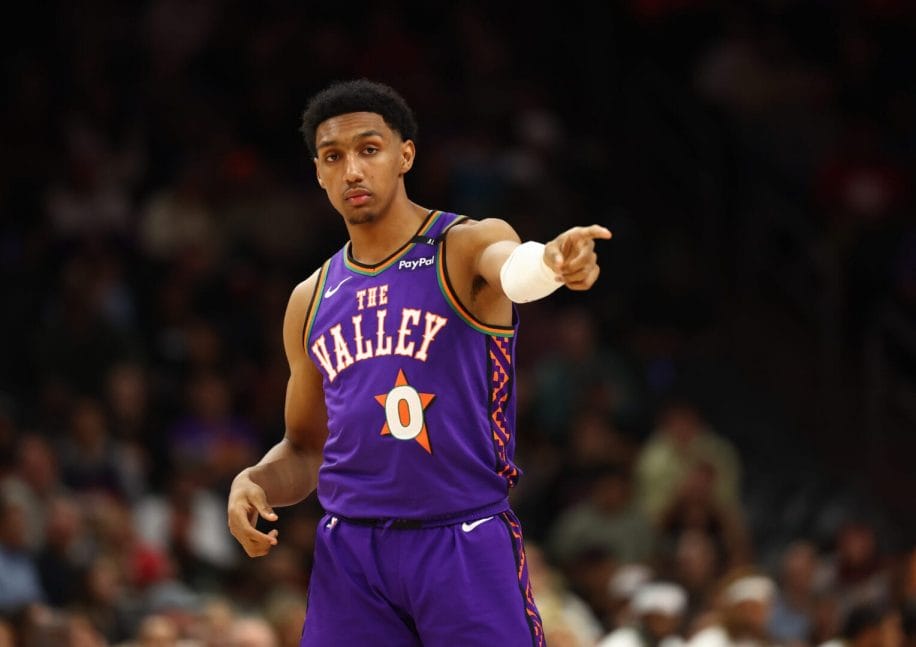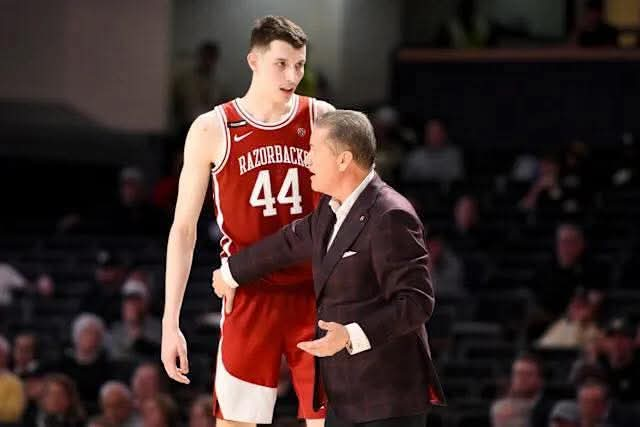Last month, Brigham Young University (BYU) hosted what they described as the most significant recruiting weekend in the program’s recent history. Sixteen high-profile recruits made official visits to the Provo campus, including some of the most sought-after high school prospects in the country. Of those 16 recruits, 10 arrived on campus without having committed to BYU, and all of them were still seriously considering offers from other Power Four programs. Among those uncommitted players was five-star quarterback Ryder Lyons, arguably the biggest name on BYU’s recruiting radar.
Now, just a month removed from that pivotal weekend, it’s clear that BYU’s efforts paid off in a major way — and perhaps even more successfully than originally anticipated. Of the 10 uncommitted players, nine have since made their college decisions. Eight of them chose to commit to BYU, marking an extraordinary win rate for the Cougars’ coaching staff.
The list of those who chose BYU reads like a dream class for Cougar fans. Ryder Lyons, the headliner of the group, decided to bring his talents to Provo. He was joined by a strong supporting cast: Jax Tanner, Kaue Akana, Jaxson Gates, Lopeti Moala, Nehemiah Kolone, Braxton Lindsey, and Graham Livingston all committed to BYU. The only two who didn’t make that same decision were Prince Williams, who committed to Arizona, and Adam Bywater, who remains undecided but has narrowed his options down to BYU, Boise State, and Utah.
The success BYU had in converting these prospects into commitments can be likened to a batting average in baseball. In that analogy, no team is expected to go 10-for-10 at the plate, just as no coaching staff can expect to land every single top recruit. However, what BYU managed — securing eight out of the nine recruits who have made decisions so far — gives them an astounding success rate of nearly 89%. This figure is practically unheard of in high-level college football recruiting, where fierce competition and a myriad of influencing factors often lead to lower conversion rates. Not only did BYU do exceptionally well with the uncommitted players, but they also retained all the recruits who had already committed prior to the visit.
Even more impressive was BYU’s ability to pull off a couple of significant recruiting upsets during that monumental weekend. One of the most notable victories came in the form of linebacker Braxton Lindsey. Before visiting Provo, Lindsey had released a final list of four schools he was considering — and BYU was not among them. Despite being excluded from his initial top choices, BYU managed to win him over during his visit, and he eventually committed. This reversal speaks volumes about the experience recruits had while on campus and the persuasiveness of the BYU coaching staff.
Another major win came with Jaxson Gates. When he arrived in Provo for his official visit, Gates was already committed to Syracuse. However, something during that weekend convinced him to reevaluate his decision. After spending time with the coaches, touring the facilities, and connecting with players and other recruits, Gates chose to flip his commitment from Syracuse to BYU — a significant development that highlighted the strength of BYU’s recruiting pitch.
There is still one lingering piece in this recruiting puzzle: linebacker Adam Bywater. He remains undecided, with BYU, Boise State, and Utah vying for his commitment. The Cougars are reportedly in a strong position to land Bywater, and if they do, it will bring their total to 9 of the 10 previously uncommitted recruits choosing BYU following the recruiting weekend. Securing Bywater would put the finishing touch on an already stellar recruiting haul and would further solidify BYU’s efforts as not just successful, but historic.
Head coach Kalani Sitake has long emphasized the importance of hosting recruits on campus, often asserting that once prospects see what BYU has to offer — the facilities, the coaching staff, the culture, and the overall environment — they are much more likely to commit. This past month has served as a clear example of that philosophy in action. The sheer number of commitments that followed the visits backs up Sitake’s claim and reinforces the idea that BYU can be highly persuasive in a face-to-face setting.
The impact of this recruiting success goes beyond just individual commitments. With this wave of talent joining the fold, BYU has made a significant jump in the national recruiting rankings. The Cougars now find themselves ranked among the top 25 programs in the country, a notable achievement given the level of competition in recruiting. Even more importantly, BYU has now ascended to the top of the Big 12 conference’s recruiting rankings — a major milestone as the program continues to establish itself in its new conference home.
In summary, BYU’s recent recruiting weekend was not only the most important in recent history, as originally claimed, but it also turned out to be one of the most productive. With a conversion rate of nearly 90% on uncommitted prospects, including flipping players from other schools and pulling in a few unexpected victories, the Cougars have given their fan base plenty of reason to be excited. If Adam Bywater ultimately commits to BYU as well, it will put an exclamation point on an already remarkable recruiting run. Regardless of Bywater’s final decision, this effort has positioned BYU as a serious player in national recruiting circles and a rising force in the Big 12.



